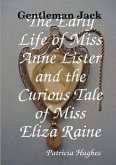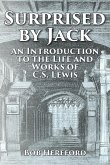Anne Lister was born in 1791, the eldest living child of an extended landed family in Halifax in the West Riding of Yorkshire in northern England. As a girl with two brothers she would not inherit, so she decided to write for a living. From 1806 she wrote notes and described events in her life, but from 1817 her life changed - and she wrote her extensive journal every day until her death in 1840. Anne Lister's Diaries are recognised by the European Union as unique. They were donated in 1923 to Halifax Archives in West Yorkshire, England. The recent TV Series 'Gentleman Jack' is based on her life.
Hinweis: Dieser Artikel kann nur an eine deutsche Lieferadresse ausgeliefert werden.
Hinweis: Dieser Artikel kann nur an eine deutsche Lieferadresse ausgeliefert werden.








